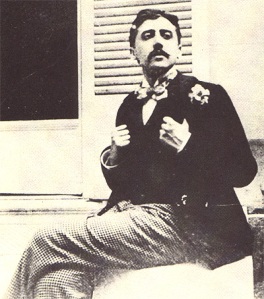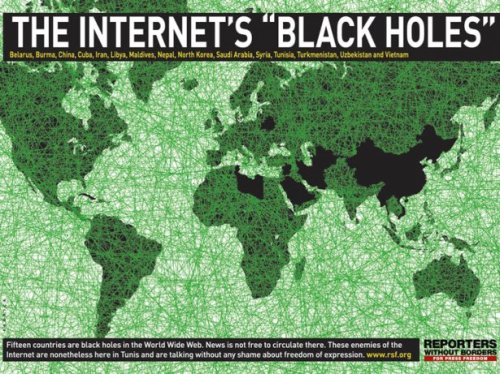 DISCLAIMER: A major assignment in my Ethics for Public Relations Professionals class was to write a personal code of ethics that will later be used in my Capstone class at the end of my master’s program. I have been writing my personal code for several weeks, and I am very excited about the finished product. I think that I will hold myself more accountable for living my life according to this code if it is public information. I realize that it is a little long, especially for a blog post, but I thought I would share anyways. Enjoy!
DISCLAIMER: A major assignment in my Ethics for Public Relations Professionals class was to write a personal code of ethics that will later be used in my Capstone class at the end of my master’s program. I have been writing my personal code for several weeks, and I am very excited about the finished product. I think that I will hold myself more accountable for living my life according to this code if it is public information. I realize that it is a little long, especially for a blog post, but I thought I would share anyways. Enjoy!
Background
My personal values act as a basis for distinguishing between right and wrong and thus, determine my daily actions and emotions. My parents and education have played profound roles in the development of my core personal values: personal integrity, excellence, responsibility, family and ambition. Additionally, these influences have demonstrated certain rule-based, ends-based, and virtue-based approaches to determining what conduct is consistent with these key values.
Through her own actions, my mom has taught me to always put my family first, and to evaluate the morality of my potential actions with an ends-based approach by considering the consequences for the rest of my family (Gower, 2008). My mom is incredibly compassionate, and her main goal in life is to protect her family and help her children grown into happy, healthy adults. When my younger brother was born, my mom chose to stop practicing nursing so that she could raise her children and instill in us many of the values that are outlined in this code. As my brother and I move towards adulthood, my mom urges us to support each other in all of our endeavors and further grow our friendship. The result, she says, will be an unbreakable bond that will sustain us even when our parents have passed.
Siding with deontological philosophers and demonstrating a rule-based approach, my mom taught me that disrespectful, dishonest, and self-centered actions were morally wrong, regardless of their outcomes (Gower, 2008). She also regularly acted upon her strong sense of duty to help others. Even if she was driving carpool, it was not uncommon for her to pull off the road to help a confused-looking elderly lady or a lost pet. Even though this delay often made my friends and me late to our destinations, my mom’s actions were moral based on her motive (Gower, 2008). Her stern belief that “it takes all types to make the world go ‘round” has influenced me to use the rights approach – to consider the rights of individuals, to respect human dignity, and to avoid using people as a means to an end (Velasquez, Andre, Shanks, & Meyer, 1996).
My dad’s insistence upon moving beyond his modest background and aspiring to distinction within his in his profession has inspired my commitment to accomplishment and success, knowledge and higher education, hard-work, excellence and wealth. My dad was one of four brothers raised on my grandparent’s rural horse farm outside of Baltimore. Every day, he and his brothers endured teasing by their more affluent private school classmates who thought the boys smelled like horses. My dad and his brothers were not expected to go to college, since no one in their family had done so before. My dad’s brothers were kicked out of private school after private school and eventually gave up on their educations. Instead of following suit, my dad worked tirelessly to become one of the top physicians in the field of obstetrics and gynecology. With regards to his goals and education, he demonstrated egoism – enlightened self-interest and a focus on what would provide the most good for him in the long-run (Gower, 2008).
My dad’s practice of medicine requires him to make ethical decisions on a daily basis, and he often takes a utilitarian approach to determining what is right (Gower, 2008). For example, he would recommend the termination of a pregnancy that neither the mother nor baby could reasonably be expected to survive. While some people view abortion as inherently wrong, my dad would not use a rule-based approach in the aforementioned case; instead, he would focus on the consequences of his actions and try to keep the highest number of patients, fetuses, and babies healthy. However, whenever I have consulted my dad on a personal ethical dilemma, he has rarely focused on the reasons for or the consequences of my possible decisions. More often, he has asked me to apply a virtue-based approach by examining the individual actor rather than the action itself (Gower, 2008). This required me to consider how my possible decisions would reflect on the person I am, and how that person would compare to my best possible self (Velasquez, Andre, Shanks, & Meyer, 1996).
I attended a private preparatory school, Collegiate School in Richmond, VA, from kindergarten through twelfth grade. Collegiate’s 1,500 students (grades K-12) abide by a strict honor code and live according to the school’s shared values of honor, love of learning, excellence, respect and community (Collegiate School, n.d.). Students are expected to become heavily involved in the community- they must participate in at least two out of the three sports seasons, among other extracurricular requirements. The Collegiate community instilled in me values that guide my virtue-based approach to personal ethics, and it taught me to consider the common good of the community when making ethical decisions (Velasquez, Andre, Shanks, &Meyer, 1996).
During my undergraduate experience at Washington and Lee University (W&L), I was again part of a tight-knit community that emphasized honor, integrity and civility and abided by a rigorous honor system. The W&L Honor System means that students must never lie, cheat or steal and that they must respect other people, their opinions and their property. It punishes only actions that the current student body sees as violations of the community’s trust. Furthermore, it does not rank these breaches of trust by their severity, and it does not overlook “smaller” violations. The consequence for any violation of the Honor System is dismissal from W&L (Washington and Lee University, n.d.). In this way, W&L uses a rule-based approach to judging ethical behavior (Gower, 2008). W&L’s honor system originated with Robert E. Lee, who said, “We have but one rule here, and it is that every student must be a gentleman” (Washington and Lee University, n.d.). Unfortunately, during my time at W&L, I witnessed many students abandoning gentleman-like behavior upon entering gossip-infused fraternity lunch rooms or substance-infused fraternity parties. These occasions resulted in me promising myself to carry my core values with me at all times, no matter the situation.
Ethos Statement
As a result of my background, I place a special emphasis on maintenance of personal integrity, pursuit of excellence, acceptance of responsibility, love of family and achievement of ambitious goals. I have high expectations for myself with regards to my actions; on at least a weekly basis, I take time to reflect on who I am and how that compares to my best possible self. My actions make me who I am, so it is important that I honor the following commitments in all of my actions, both personal and professional (Georgetown University, n.d.):
- A commitment to doing in my heart what I know is just and right.
- A commitment to performance that produces exceptional results and quality as a way of life.
- A commitment to valuing the trust and confidence of my family, friends, co-workers, employers and/or clients and community.
- A commitment to spending time with my family, supporting them in all of their endeavors and making them proud.
- A commitment to my personal image of what can be and my belief that it will be; a commitment to setting goals and systematically working towards achieving them.
Code of Conduct
Conduct consistent with my value of personal integrity:
1. I will not change who I am for others, and I will stand up for my beliefs even when they are unpopular.
Explanation: If I’m not confident in myself and respectful of what I believe, then I cannot expect others to exhibit confidence in me and respect my beliefs. While it may be uncomfortable for me when other people disagree with my actions, and while my unpopular actions may not yield the most positive outcomes for me, my ethical decision making is often rule-based and virtue-based rather than consequence-based. To me, my motives (ex: honoring my commitment to respect individual human dignity) and my virtues (ex: personal integrity) are better determinants of my own morality than are the consequences of my actions (ex: being unpopular with my co-worker or not getting a promotion.)
The nature of the communications field requires its professionals to advocate on behalf of an organization, person or cause (Parsons, 2008). Propagating a message that I don’t personally endorse is the same as lying to the public and failing to stand up for my own beliefs. By professionally disseminating a message that I personally oppose, I would clutter the relevant “marketplace of ideas” (Fitzpatrick & Bronstein, 2006, p. 4) and weaken the messages in line with my actual point of view. In other words, attempting to persuade the public on a point of view that I myself do not support would compromise my personal integrity. Therefore, I will be extremely selective in choosing the clients on whose behalf I advocate as a communications professional (Parsons, 2008).
Dr. Seuss said it best- “Be who are you are and say what you feel because those who mind don’t matter and those who matter don’t mind.” The people who truly care about my well-being will not try to change me, even if they do not always agree with me. Instead, they will accept me for who I am and acknowledge my right to have different beliefs than them. While I may be disappointed as I come across “those who mind,” Dr. Seuss’s advice will ultimately help me recognize “those who matter.”
2. I will treat people as I want to be treated myself (the Golden Rule).
Explanation: Put simply, I will always be courteous and civil in my day-to-day dealings with people. Just because I am in a bad mood does not give me the right to take my frustrations out on the world. In fact, it is important that I try to brighten other peoples’ days and have a positive impact on everyone with whom I come into contact. For example, rather than sitting silently during cab rides and ignoring my driver, I choose to engage him or her in conversation. Everyone has an interesting life story that they are bursting to tell. By applying reversibility, I know that my day is always better when someone expresses interest in hearing mine.
3. I will value basic human dignity and rights and will not intentionally cause harm to another human being.
Explanation: Human beings have the God-given ability to decide for themselves how they will lead their lives, and they have a basic moral right to have their decisions respected. This freedom to choose gives humans, regardless of their race, religion, nationality, ethnicity, gender and sexual orientation, a unique dignity (Velasquez, Andre, Shanks, & Meyer, 1996). As long as an individual respects the human dignity of others, then that individual deserves to have his or her dignity acknowledged by me and to be free from the threat or occurrence of any sort of physical, verbal or emotional abuse. I adopt a rights-based approach to determining the morality of my behavior. In other words, my actions must treat humans as ends in and of themselves (Velasquez, Andre, Shanks, & Meyer, 1996).
4. I will be transparent in my purpose and act in a manner that is fair and just for all concerned.
Explanation: It is important to promote a spirit of openness in both my personal and professional lives. In some aspects of my personal life, I do claim my right to privacy and/or am willing to tell non-harmful white lies to spare the feelings of others. However, I have most often found that it is the truth that will “set me free.” I am willing to disclose all aspects of my professional life; when making professional decision, I use the “front page of the Post” test to guide my behavior. I refuse to hide information from a party who deserves access to it; however, as my career progresses, I expect to encounter grey areas. To determine whether withholding certain information would be unethical in these situations, I will ultimately examine my motives for omitting information (Parsons, 2008). I will also keep in mind that “if you don’t tell the truth, then your publics, once they are aware of this, have difficulty trusting you” (Parsons, 2008, p. 24). I owe it to my publics to serve as a credible source of accurate information.
Conduct consistent with my value of excellence:
5. I will never be satisfied with anything being less than my best effort.
Explanation: I am committed to trying my hardest in all aspects of life, be it a work assignment or a personal relationship. I grew up as an anxious perfectionist, but luckily, my mom finally ingrained in me her motto: “as long as you give it your best effort, that’s all you can do.” To me, excellence is not about the results I achieve; instead, it is about the means by which I achieve them and my adherence to standards and rules that I have set for myself. In prioritizing where my “best efforts” go, it is important that I maintain a healthy work-life balance. After all, if I dedicate all of my time and effort to my professional life, my personal life will go by the wayside, and I will not achieve excellence (or happiness) in this realm. While the meaning of a healthy work-life balance will change as I continue to evolve, it currently involves excelling at the office and in the classroom while still being a reliable and present family member and best friend and saving time for daily activities that I enjoy, like exercising and reading.
6. I will seek continuous improvement.
Explanation: Personally, it is important that I strive to live a more virtuous life every day. The more that I can live according to my virtues, the more moral my actions will be and the more ethical of a person I will be (Velasquez, Andre, Shanks, & Meyer, 1996 ). Professionally, competence is necessary to achieve excellence. I agree with Parsons (2008) when she says “respecting our clients, our communities, and ourselves requires us to exhibit competence in our professional activities” (p. 55). I will maintain a level of competency in my profession through continuing education opportunities and selective client choice. Currently, I am working towards my master’s degree in public relations with a concentration in digital communications at Georgetown University. I also attend internal workshops at my company and stay up-to-date on the latest social media news and trends. I do not take on client work that I know I am not qualified to handle. Instead, I work with a supervisor on the task so that I can be qualified to handle such work in the future.
Conduct consistent with my value of responsibility:
7. I will keep my promises and honor my commitments.
Explanation: Because I play many roles, my promises and commitments take many forms, including promises to myself, my friends, my family and my profession as well as contracts, agreements, assignments for work and my professional development classes. One especially important professional commitment is confidentiality to my employer and/or client. Unfortunately, there will be times when my responsibilities to myself, my employer or client, my profession and society will come into conflict with each other, and some responsibilities will take priority over the others (Parsons, 2008). In these cases, I will use virtue to juggle my loyalties to these different parties on a case by case basis. My reason for developing a career in communications is to serve the public through the delivery of accurate messaging to inform their decisions and ultimately improve society. Therefore, my duty to society is ethically greater than my duty to my employer or client, and is the “key to social responsibility” (Parsons 2008, p. 26).
8. I will fulfill the functional and moral obligations of my many roles and accept accountability for my shortcomings, negligence and oversight in fulfilling these obligations.
Explanation: My many roles include daughter, sister, best friend, student, assistant account executive, Christian and housemate. In each of these roles, I fulfill functional obligations as well as related moral obligations (Fitzpatrick & Bronstein, 2006). For example, one of the functional obligations for my job is to assist with blogger outreach and track resulting blog hits; a related moral obligation is to ensure that bloggers who write about our client in response to our blogger outreach activities fully disclose their relationship with our client and outreach program. Since the functional obligations of a role are often accompanied by moral obligations, “responsibility assumes that the actor becomes also a moral agent possessed of a certain level of moral maturity and ability to reason” (Fitzpatrick & Bronstein, 2006, p. 20). I will hold myself accountable for an action if I am “functionally and/or morally responsible for an action, some harm occurred due to that action” and) I “had no legitimate excuse for the action” (Fitzpatrick & Bronstein, 2006, p. 21). To avoid questions of personal accountability, I will strive for relative autonomy in all of my roles, but particularly in my role as a responsible public relations professional. If I am not to have excuses for my actions, and thus accept accountability for them, then I must be “free to make decisions” associated with my job “without outside pressure or influence” from my company, supervisors, coworkers, or clients (Fitzpatrick & Bronstein, 2006, p. 21). Accepting accountability when I fail to fulfill certain obligations means that I make these unintentional wrongs right regardless of any inconveniences to me.
9. As a communications professional, I will tell the truth for the common good of my publics.
Explanation: Truth is the “singular most important element in the efficient operation of the marketplace of ideas in American society” (Fitzpatrick & Bronstein, 2006, p. 11). This is because the marketplace of ideas concept “rests on the premise that the truth will emerge from ideas and messages competing in a public form” (Fitzpatrick & Bronstein, 2006, p. 12). This means that any effort to disseminate false truths or hinder the dissemination of truthful information interferes with my publics’ informed decision making and rights to receive accurate and truthful information (Fitzpatrick & Bronstein, 2006). Thus, as a responsible public relations professional, my advocacy for clients must “equalize access to the marketplace,” “contribute to marketplace processes,” make a “meaningful contribution to the marketplace of ideas,” “tell the truth” and disclose “timely, relevant, and complete information” in a forthright way (Fitzpatrick & Bronstein, 2006, p. 9-13).
Conduct consistent with my value of family:
10. I will always make my family my number one priority. I will bring them joy and derive great joy from my relationships with them.
Explanation: No matter what else is going on in my life, my highest obligation will always be to my family. This is my rule, and my ethical decisions will follow it. I do however understand that not everyone lives their lives according to this rule, and I will not view them as immoral for breaking it. It is because my family and I have a very special relationship that I am comfortable making this strong commitment to them. My happiness comes from making my family happy, and I know that they feel the same way about me. I have very strong faith in my family because I know that no matter what happens in my life, they will have my back. Taking actions to support them, visit them, talk on the phone regularly with them and be an overall presence in their lives is more important to me than anything else.
I plan on waiting to start my own family until after I have a well-established a communications career, financial security and several “childless” years with my husband under my belt. When I do have children, they will take priority over my career and recalculate my relationship with my husband. It is important to me that I wait to have children until I can take a true vow of selflessness.
11. I will view my life as a gift and be grateful for it and my circumstances each and every day.
Explanation: God has given me the best possible family and life for which I could ever ask. I have been blessed with an extremely comfortable life, and I realize that this is not the norm. For this reason, I am thankful for what I have been given every day, and I try to use my privilege to improve my community through service and donations when possible.
Conduct consistent with my value of ambition:
12. I will be optimistic and look for a larger purpose behind my actions.
Explanation: Since I am only beginning my career as a communications professional, my work may at times feel tedious and unimportant. Only when I strive to understand where my daily tasks fit in with my team’s larger communications strategy for our client can I realize my importance to my team and my client. More importantly, by looking at the big picture, it becomes clear how important the communication profession is to educating society and making information flow freely. With this optimistic insight, I am certain that I have chosen the best profession for me and satisfied that I have the opportunity to make a difference for society.
Another overarching purpose for my professional work is to achieve a comfortable and nurturing lifestyle for myself and my family. While I refuse to compromise my other values to achieve wealth and am disinterested in the status that comes with wealth, affluence serves as a motivator in my professional life for two reasons. First, it is a symbol of professional success, and a reward for years of hard work. Second, I dream of one day giving my children everything that my parents gave and continue to give me, including a nice house with a big yard in a safe neighborhood, a vacation home on the water, and a huge investment in my future. While the possible consequences of my work, like promotion and wealth, should not impact my decisions in ethical dilemmas, it is good practice to consider my professional goals and future to stay focused and hungry in my career.
My Code and the Real World
As a public relations professional, I plan on joining the National Capital Chapter of the Public Relations Society of America (PRSA-NCC). It was PRSA’s code of ethics that originally sparked my interest in joining this society. After analyzing several professional codes relating to the public relations, communications and marketing industries, I found PRSA’s code to be most consistent with my own code of ethics. The purpose of PRSA’s code is to “anticipate and accommodate, by precedent, ethical challenges that may arise” for its members (PRSA, 2000, p.1). Resolving these ethical challenges is so important to PRSA members because “the level of public trust PRSA members seek, as we serve the public good, means we have taken on a special obligation to operate ethically” (PRSA, 2000, p. 1). This statement of improving society through the delivery of trustworthy communications is directly in line with my motive for pursuing a career in public relations.
I fully support all six of PRSA’s specifically-defined core values: advocacy, honesty, expertise, independence, loyalty, and fairness (PRSA, 2000). I am especially impressed by PRSA’s explanations of advocacy, expertise, independence and loyalty because they emphasize key provisions addressed in my own code of ethics. These include providing “a voice in the marketplace of ideas, facts and viewpoints to aid informed public debate,” advancing the profession “through continued professional development, research and education,” providing “objective counsel” to our clients, being “accountable for our actions” and “honoring our obligation to serve to public interest” (PRSA, 2000, p. 1-2). In comparison with the other codes that I analyzed, PRSA’s code of ethics is unique for its commitment to enhancing the profession and its discussion of competence (PRSA, 2000). According to my own code of conduct, I will enhance the reputation of this profession through my own commitment to continued improvement, and will hold myself to high standards of competence. My personal code promotes actions that are extremely consistent with PRSA’s code provisions, like contributing to the free flow of information and avoiding situations “that put one’s personal or professional interests in conflict with society’s interests” (PRSA, 2000, p. 3).
Conclusion
My personal code of ethics will guide my resolution of ethical dilemmas. It is consistent with my employer’s code of ethics as well as the code of ethics of a professional organization that I hope to join in the near future. Since my code of conduct is based on values that have been ingrained in me by my parents and educational institutions, it should not be especially hard for me to follow. However, as I continue to grow personally and professionally and as I encounter new ethical dilemmas that cannot be resolved according to my code, I will revise and expand upon this document.
References
Collegiate School. (n.d.) Mission & values. Retrieved July 9, 2010, from http://www.collegiate- va.org/podium/default.aspx?t=22118
Fitzpatrick, K., & Bronstein, C. (Eds.). (2006). Ethics in public relations: Responsible advocacy. Thousand Oaks, CA: Sage Publications, Inc.
Georgetown University. (n.d.) Ethos statement. Retrieved July 12, 2010, from http://studentconduct.georgetown.edu/ethos/
Gower, K. K. (2008). Doing the right thing. In Legal and ethical considerations for public relations (pp. 1-23). Long Grove, IL: Waveland Press, Inc.
Parsons, P. J. (2008). Ethics in public relations: A guide to best practice (2nd ed.). Philadelphia, PA: Kogan Page Limited.
Public Relations Society of America. (2000). PRSA member code of ethics. New York, NY: Author.
Velasquez, M., Andre, C., Shanks, T., & Meyer, M. J. (1996). Thinking ethically: A framework for moral decision making. Issues in Ethics 7(1). Retrieved from http://www.scu.edu/ ethics/practicing/decision/thinking.html
Washington and Lee University. (n.d.) The Honor System. Retrieved July 17, 2010 from http://www.wlu.edu/x34.xml








